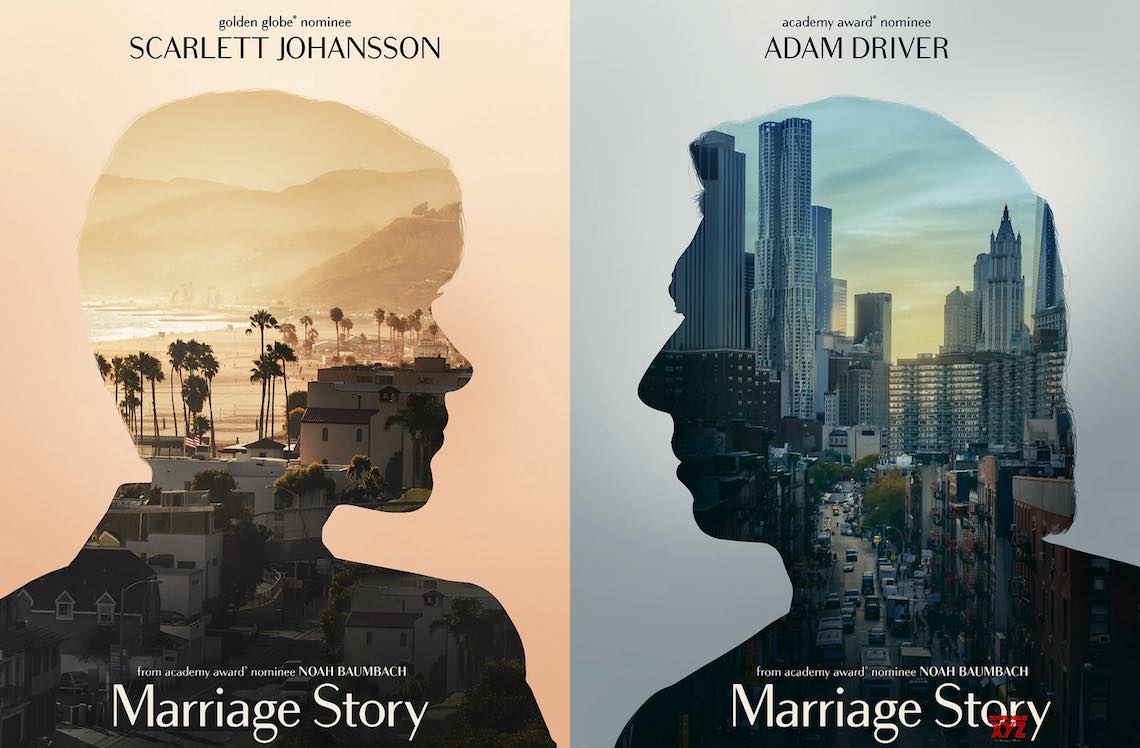Marriage Story, Baumbach’s second treatise on divorce, demonstrates, Baumbach asserted in a recent Guardian interview, that to take sides is folly. The film, to his credit, is admirably diplomatic in its execution. A couple, once in love, now bitterly fight over custody as a woman finds her voice and a man desperately clings to his fading identity.
Somewhere along the line, Nicole ceased to be a separate entity from her partner, Charlie. She became subsumed in his intoxicating capacity to fearlessly and ceaselessly pursue his own vision, both for himself and the world around him. He encourages the same vivacity in Nicole who, it becomes clear, has a problem communicating what she wants. So, as Nicole reflects, she “went along with his life because it felt so good to be alive”. Charlie is not the villain of the piece and Nicole never leads us to believe as much. Indeed, he once inspired greatness in her, made her a better person, as she did him, but at a certain point his voice became louder and hers ceased to exist. Basically, Charlie got complacent, he didn’t listen and willingly allowed Nicole, a woman he once loved and cherished, to become an extension of himself. This is to Charlie’s fault and detriment and as Nicole begins to separate herself from Charlie, becoming a more complete person, he in turn loses a part of himself. Charlie is driven to the toxic extremes of his bombastic personality, the process brings out his pettiness and his anger as he desperately attempts to cling onto the voice and identity he is forced to return to Nicole. He dresses as The Invisible Man for Holloween, a symbolically significant costume choice if there ever was one; Charlie admits in a fit of rage that he wishes death on Nicole and, later, cuts himself with a pen knife (albeit accidentally but, then, Freud teaches us that there are no accidents). One can’t help but feel sorry for Charlie but his is a fate of his own making after all.
“God is the father and God didn’t show up”, Laura Dern’s Nora Fanshaw passionately expounds. “You will always be held to a different, higher standard”, she advises Nicole, “and it’s fucked up”. It’s refreshing to hear this, in a genre overwhelmingly dominated by stories of the battered male ego: the woman abandons the man, the man learns something and the credits roll, and so it goes. It’s fucked up. It’s true that it is Nicole who gets the lawyers involved, thus starting the toxic custody battle, but Charlie was naive in the first place thinking that lawyers weren’t necessary. Nicole is never presented as the villain, she needs a voice and she deserves one and, legally speaking, Nora provides her with one. Charlie, after all, doesn’t think it’s necessary because he doesn’t think it’s over, he thinks he will return to normality and his beloved New York once Nicole comes to her senses. Nicole is his rock, she is the dutiful Mary Magdalene, an awful and unjust position to be placed in and Nicole knows it. Charlie is not the villain either of course, he is a product of a society where, to return to Nora’s impassioned discourse, “he can be a fuck up and it doesn’t matter”. It’s a wonderfully nuanced place to take the love story, a nuance which has been on the whole absent from the genre’s big players. There are no clear-cut villains in a story which is primarily about conflict: this is incredibly brave and Baumbach should be applauded.
Speaking of the lover, it was Roland Barthe who once said, “everything is irksome which briefly erases the dual relation, which alters the complicity and relaxes the intimacy: ‘you belong to me as well’, the world says”. Basically, the lover does not want to share the loved subject and, consciously or not, resists their attempt at building a world apart from them. The western love story, up to this point, has failed to counteract this toxic human tendency, instead opting to play sides and villainise the, usually female, subject who dares disturb the lover’s discourse. Marriage Story is a revelation in this regard, it patently states that life is not this simple: when one character is in the right, it does not necessarily mean that the other character is in the wrong. This leads, perhaps, to a less satisfying conclusion but perhaps we’ve relied too heavily on satisfying conclusions and perhaps it is time that people like Noah Baumbach disturbed them.
‘Marriage Story’ is a review of the same film written by Matthew Rooney.

